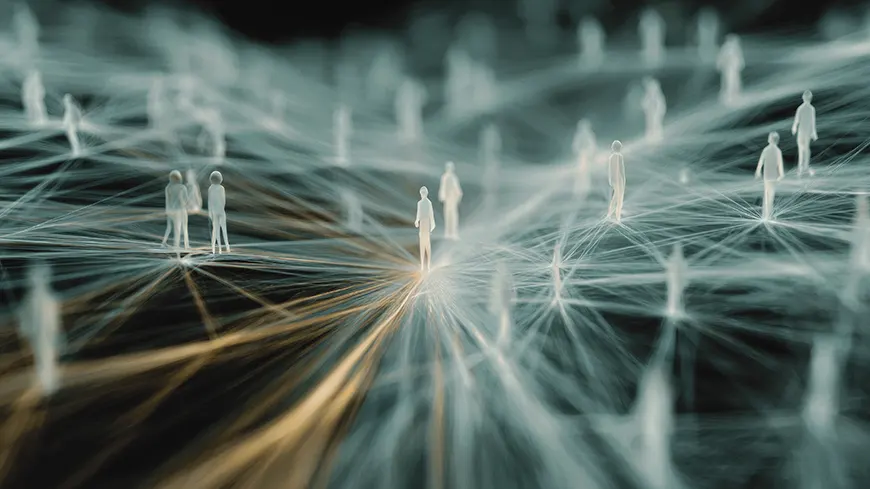Performance, luck, and group composition in a Multilevel Public Goods Game:
Will human groups be able to cooperate for climate action?
Laura Marcon & Pedro Francés-Gómez
Climate Change mitigation may be thought of as a global public good. Public Goods are collectively beneficial, but obtaining or maintaining them require individual contributions, and this poses a dilemma. The benefit that public goods provide accrues to everyone: if climate change is sufficiently mitigated in the next few decades, this will be equally beneficial for all inhabitants and ecosystems of the planet, no matter how much they contribute. But the first move is individually costly: countries may need to sacrifice economic growth and welfare; industries may need to reduce benefits and people may need to lower their living standards. Given that the public good will benefit all, the individual dilemma is this: If most others contribute to the provision of the public good, it will be attained, and my own contribution may not be necessary. I would get the benefit without the cost. If most others dodge their duties, the public good will not be produced anyway, so it would be pointless to make a personal sacrifice. Whatever others do, individual reasoning seems to advise not to contribute much to the collective effort. But if everyone reasons like this, cooperation will fail for sure, with catastrophic consequences.
Something like this dynamic led the USA under Trump to retreat from the Paris Agreement on Climate Change in 2020, even if that agreement was not terribly demanding of individual economies. The Kyoto Protocol of 1997, the first global agreement to tackle climate change, entered into force only in 2005 because individual countries were hesitant and slow in ratifying it. USA never did, so the Protocol has never become obligatory for them.
Individual countries may prefer to support their local industry and lifestyle. If cooperation at a global level is not to be expected, the best each can do for itself is to back away from cooperation.
In absence of a superior coercive power to impose taxes or other forms of contributions to public goods, they require a shared voluntary commitment to contribute. Would you, for example, volunteer to pay an extra 5% in taxes just to implement global mitigation policies wherever they are most effective (it may be in your country, or in a distant one)?
Climate action requires us to improve our understanding of what determines individual disposition to contribute to local or global public goods. Is it the sense of ownership in our own possessions what prevents us from contributing to public goods? Is it commitment to our local community, as opposed to our commitment to a larger community that may include different groups? Is it our tendency to group with people like us? Our sense of fairness if we think we are giving away what we have acquired legitimately to help underserving strangers?
To explore some of these questions, we have designed a laboratory experiment in which people had to make a consequential choice in a situation that captures the dynamic of public goods at different levels; something that may represent the trilemma: pure individual selfishness; cooperation with local group; cooperation with a larger community that includes other groups.
Building upon recent work on real-effort and inequality effects in nested social dilemmas, and in collaboration with previous co-authors Lorenzo Spadoni, Marco Catola, Pietro Guarnieri and Simone D’Alessandro, we examine whether differences perceived as deserved (arising from performance) elicit distinct behavioral patterns from those perceived as arbitrary (arising from luck), and how these perceptions interact with group composition to shape cooperation, that is, contribution to public goods.
Participants played a one-shot Multi Level Public-Goods-Game MLPGG in which individuals allocated their endowment among a private account, a local public good (benefiting four local members), and a global public good (benefiting eight players in two local groups). As in the standard MLPGG framework, the marginal per capita return for the local good was higher than for the global one, creating a trade-off between in-group and broader cooperation. This design captures the fundamental tension between local efficiency and global welfare that underlies many real-world coordination and sustainability problems.
The design allows a clean comparison between earned and arbitrary inequalities under different social compositions. Our questions are how cooperation patterns change when inequality is perceived as legitimate versus arbitrary, and when social interactions occur between equals versus unequals. According to previous literature, we expect that participants who earned their endowment through effort will feel a stronger sense of entitlement and exhibit lower prosociality, especially toward the global public good, which benefits outsiders. In contrast, when inequality is randomly assigned, advantaged participants may experience moral pressure to compensate for their unearned advantage, thus maintaining or even increasing their global contributions.
As for the impact of intergroup and horizontal inequality, the literature predicts that inequality between peers fosters parochial cooperation and reduces willingness to share benefits across groups. Hence, we expect homogeneous groups – where all members share the same endowment level – to exhibit higher coordination and internal efficiency, whereas mixed groups may experience reduced collective performance due to social comparison, fairness concerns, and anticipated exploitation. The MLPGG structure further allows testing whether inequality operates mainly on the local–global allocation margin, revealing whether participants direct their cooperation inward (in-group) or outward (cross-group).
We formulate the following hypotheses regarding the expected behavioral effects of the source and structure of inequality.
H1. Source of inequality (Real-effort vs. Luck): Participants who earn their endowment are expected to contribute less overall than those who are randomly assigned a higher endowment. This difference should be particularly evident in contributions to the global public good.
H2. Structure of inequality (Mixed vs. Homogeneous groups): We hypothesize that the introduction of horizontal inequality – the coexistence of advantaged and disadvantaged members within the same local group – will lead to greater within-group differentiation in cooperative behavior. In mixed groups, low-endowment members are expected to contribute a higher share of their limited resources to the local public good. High-endowment members, in contrast, are expected to maintain or slightly reduce their contributions, thereby reinforcing existing disparities. This asymmetry should be more pronounced when inequalities arise from effort, as perceived merit is likely to legitimize unequal levels of cooperation.
H3. Group composition and cooperation: We expect homogeneous groups, composed entirely of members with the same endowment level, to exhibit higher internal coordination and contribution stability than mixed groups. Such groups should display more uniform contribution patterns and greater efficiency at the local level. However, when both local groups consist of high-endowment members (the homogeneous–performance–high condition), we anticipate a decline in aggregate contributions to the global public good, reflecting that equality in privilege does not necessarily translate into broader, cross-group cooperation but may instead reinforce in-group boundaries.
Our experiment contributes to the behavioral economics of fairness and social identity, offering empirical insights into the mechanisms linking merit, luck, and cooperation. It will help us understand some local and individual attitudes towards costly mitigation measures, so that institutional design and communication about climate action may be more effective.
Being aware of the extreme difficulty of effective global coordination in an unequal and divided world is the first step towards mitigation.



